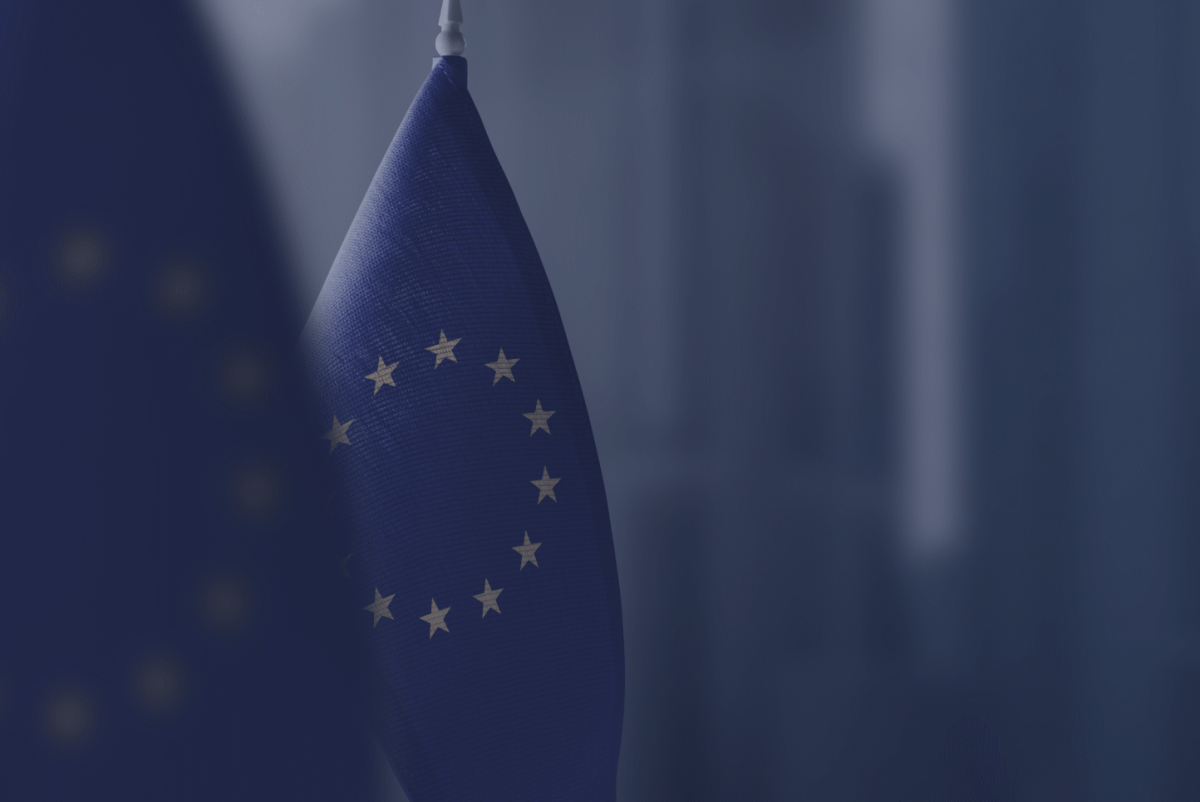How the CLOUD Act Puts EU Businesses at Risk of Compliance Violations
“Your EU-based data is safe from U.S. law—right?”
It’s a comforting belief for many European organisations. If your data is physically hosted on servers in Frankfurt or Amsterdam, surely U.S. authorities can’t touch it? Unfortunately, this is a myth—and one that could expose your business to serious compliance risks.
The reality is that the U.S. CLOUD Act extends Washington’s legal reach deep into European data centres whenever a U.S.-owned or -controlled provider of these centres is involved. For EU companies subject to GDPR, this creates a possibly complex legal collision: two applicable legal frameworks, pulling in opposite directions.
Understanding the CLOUD Act vs GDPR conflict is no longer optional because it directly affects your compliance strategy and policy, your customers’ trust, and the long-term sovereignty of your data.
Table of contents
- What is the CLOUD Act
- CLOUD Act vs GDPR: a legal collision
- Real-world impacts on EU businesses
- Mitigation strategies for EU organisations
- Digital Samba: A GDPR-safe choice
- Conclusion
- FAQs
What is the CLOUD Act
The Clarifying Lawful Overseas Use of Data (CLOUD) Act, passed in 2018, gives U.S. law enforcement agencies the right to demand access to electronic data held by U.S. companies—no matter where that data is physically stored.
That means:
- If your business uses a U.S.-headquartered cloud provider, like for example Microsoft, Google or Amazon Web Services (AWS), authorities can compel that provider to hand over your data, even if your data resides on EU soil. This effectively means that using a U.S. vendor automatically exposes your company to U.S. surveillance obligations.
- Providers may be prohibited from informing their customers in case such a request occurs. As a result, businesses may never know their data has been accessed until long after the fact, if at all.
- The Act applies extraterritorially, which means that a physical server location does not guarantee any legal protection. In practice, it is the ownership of the provider (where it is registered)—not the location of the servers—that determines which laws apply.
For EU organisations that must operate under the General Data Protection Regulation (GDPR), this creates a significant problem since GDPR is designed to protect personal data from precisely this type of unchecked foreign access.
CLOUD Act vs GDPR: a legal collision
At its heart, GDPR is about safeguarding EU citizens’ personal data. It places strict conditions on cross-border data transfers (Articles 44–49). In particular, Article 48 states that requests from foreign authorities for access to EU data are only valid if made through established international agreements—such as Mutual Legal Assistance Treaties (MLATs).
The CLOUD Act, however, bypasses these safeguards:
- GDPR requirement: No foreign access unless via proper treaties.
GDPR’s Article 48 explicitly prohibits responding to data access requests from non-EU authorities unless those requests are grounded in an international agreement approved by the EU or its member states. The purpose of this safeguard is to ensure transparency, judicial oversight, and respect for European sovereignty. Without such treaties, compliance would violate GDPR, exposing businesses to regulatory action and eroding individuals’ fundamental rights under EU law. - CLOUD Act mechanism: Direct orders from U.S. courts to U.S. companies, regardless of location.
The CLOUD Act removes the need for international negotiation by allowing U.S. judges to issue binding orders directly to U.S.-owned service providers. Whether the servers are in Europe, for example, in Dublin, Paris, or Frankfurt, is irrelevant—the provider’s corporate nationality determines its legal obligations. This places U.S.-controlled providers in a bind, forcing them to prioritise U.S. law over European law even when European clients are involved, and in practice undermining the EU’s carefully constructed privacy framework.
This GDPR Cloud Act conflict creates impossible situations for businesses:
- If you comply with GDPR and refuse disclosure, your U.S. provider may be legally forced to comply anyway, breaking GDPR on your behalf. This means you could face the consequences of non-compliance without ever having made the decision yourself.
- If you accept CLOUD Act compliance, you may expose yourself to severe GDPR penalties, reputational harm, and loss of customer trust. Once trust is broken, it can take years to rebuild, especially in sensitive industries such as health, education, legal or finance.
In effect, companies relying on U.S.-controlled infrastructure are outsourcing their GDPR compliance to a foreign government.
Real-world impacts on EU businesses
This isn’t a theoretical risk because there is evidence mounting:
- Microsoft admission: In court filings, Microsoft has confirmed that it may be compelled to hand over data stored in its EU data centres to U.S. authorities. This demonstrates in black and white that server location alone offers no immunity from the CLOUD Act.
- AWS Sovereign Cloud announcements: Amazon recently launched EU “sovereign” solutions in recognition that standard EU-hosted services remain exposed to U.S. law. The move itself is an admission that existing setups cannot guarantee full compliance with European privacy regulations.
- Industry consensus: IT leaders and data protection experts increasingly recommend European alternatives to reduce exposure. This shift highlights a growing awareness that digital sovereignty is becoming a core requirement, not just a nice-to-have.
For sectors like healthcare, education, or public administration—where personal and sensitive data or privacy is at stake—the threat that the CLOUD Act poses to Europe is especially real.
Mitigation strategies for EU organisations
EU businesses are not powerless. Practical strategies exist to reduce or eliminate CLOUD Act risks:
1. Choose EU-based, EU-operated providers
- Prioritise European-owned providers with headquarters and infrastructure entirely within the EU.
Choosing an EU-only provider means that every layer of the business—its leadership, shareholders, and data centres—operates under European jurisdiction. This minimises the risk of hidden obligations to foreign governments and ensures that your provider is bound exclusively by EU privacy and security laws. It also strengthens accountability: regulators, customers, and businesses can rely on a consistent legal framework without cross-border contradictions. - Verify that no parent company is subject to U.S. jurisdiction.
Even if a provider runs data centres in Europe, its legal obligations are determined by its ultimate parent company, i.e. the owner. If that parent is based in the U.S., the provider remains subject to the CLOUD Act regardless of where its infrastructure sits. Conducting due diligence on corporate ownership structures is therefore essential to ensure that no indirect ties to U.S. jurisdiction undermine your compliance efforts.
2. Encrypt data with keys you control
- Implement end-to-end encryption.
End-to-end encryption ensures that data is protected at every stage—whether in transit, at rest, or during processing—so that only authorised parties can access the content. This prevents service providers themselves from being able to read or hand over your data in a usable form, significantly reducing exposure to external legal demands. - Retain exclusive control of encryption keys so no third-party provider can unilaterally comply with U.S. disclosure requests.
If the encryption keys are held by the provider, authorities can compel them to decrypt data on your behalf. By keeping sole ownership of keys within your organisation, you maintain full control over access, ensuring that even if a U.S.-based vendor receives a disclosure order, they cannot provide readable data without your explicit involvement.
3. Vet providers against the EU Cloud Code of Conduct
- Use the EU Cloud Code of Conduct to benchmark cloud providers’ compliance and sovereignty safeguards.
The EU Cloud Code of Conduct serves as a trusted framework for assessing whether a provider truly aligns with GDPR principles, particularly regarding transparency, accountability, and data sovereignty. By using it as a benchmark, businesses can more easily compare providers and avoid those who make vague claims of compliance without independent validation. - Ensure that contractual guarantees explicitly prevent data transfer to third countries without your consent.
Even with strong policies in place, the binding force comes from your contracts. Contracts should clearly state that no data will be transferred outside the EU without your explicit, informed consent, and include remedies if the provider breaches this obligation. This gives your organisation legal recourse and strengthens your position in case of regulatory audits or disputes.
These steps do not just enhance cloud data protection—they demonstrate accountability to regulators and customers.
Digital Samba: A GDPR-safe choice
At Digital Samba, we’ve built our platform with European privacy and sovereignty at the core. Unlike U.S. hyperscalers, we are:
- EU-owned and EU-operated – headquartered in Spain and governed entirely under European jurisdiction.
Because Digital Samba is fully European in ownership and governance, it is subject only to EU and member state laws. This eliminates the risk of conflicting obligations from foreign jurisdictions such as the U.S. CLOUD Act, ensuring that your compliance and privacy strategy remains straightforward and predictable. - EU-only hosting – all data is stored exclusively on the servers belonging to EU companies.
Digital Samba works only with European subprocessors, meaning companies that are incorporated in Europe, thus keeping all infrastructure within EU borders and guaranteeing that your data will never leave European soil. This removes uncertainty about possible legal conflicts or hidden transfers and ensures your information remains protected under the strongest privacy framework in the world.
- GDPR-compliant by design – processes, contracts, and security measures aligned with EU legislation.
Compliance isn’t just an afterthought for us. It is built into the foundation of how the platform operates. From data processing agreements to security controls, every aspect of Digital Samba’s services is tailored to meet GDPR requirements and reduce regulatory risks for customers. - Transparent encryption practices – with strong safeguards to ensure only you control your data.
Digital Samba provides encryption mechanisms that are openly documented and designed so customers retain control over their sensitive information. This transparency builds trust and ensures that data cannot be accessed or shared without your explicit knowledge and consent.
Our secure, EU-hosted video conferencing API solution is tailored for businesses that value compliance as much as performance. Whether for private one-to-one sessions or large-scale virtual events, Digital Samba eliminates the hidden risks that come with U.S. providers.
With us, server location really does equal legal protection.
Conclusion
The CLOUD Act vs GDPR conflict isn’t a distant, abstract legal issue but rather an immediate risk for any EU business using the US-based technology. Storing data physically in Europe does not guarantee sovereignty when your provider answers to Washington and the US government, and not to Brussels.
By contrast, choosing EU-based providers like Digital Samba ensures your compliance, customer trust, and operational security remain intact and transparent. If your organisation relies on sensitive data and wants to future-proof against extraterritorial threats, then now is the time to act.
Explore Digital Samba’s GDPR-safe video conferencing solutions to protect your business from the CLOUD Act risk. Contact our sales team today to get informed about integration and adaptation possibilities, or to request insight into our data processing agreements.
FAQs
The CLOUD Act is a U.S. law that compels U.S.-based companies to provide data to American authorities, even if that data is stored outside the U.S.
GDPR restricts foreign access to EU data unless through legal treaties (Article 48). The CLOUD Act bypasses this, creating a direct conflict.
Yes. If the provider is U.S.-owned or controlled, U.S. authorities can demand access to data in EU data centres.
By choosing EU-owned providers, encrypting data with self-managed keys, and vetting providers against the EU Cloud Code of Conduct.
Encryption helps, but only if the provider cannot access your keys. Otherwise, U.S. authorities can compel the provider to decrypt on your behalf.
Check ownership, jurisdiction, hosting location, and compliance certifications. Ensure no ties to U.S. jurisdiction.
Sources
- Impossible Cloud. (2023). How the CLOUD Act challenges GDPR compliance for EU businesses using U.S. S3 backup.
- Mailbox.org. (2022). Digital sovereignty in uncertain times: Why European companies must act now.
- Wire. (2021). 7 reasons why American sovereign platforms in Europe are a risk to your data and privacy.
- Xpert.digital. (2022). US CLOUD Act explained.
- LinkedIn. (2021). The CLOUD Act explained: What EU businesses need to know.
Share this
You May Also Like
These Related Stories

Exploring End-to-End Encryption in WebRTC

GDPR Compliance in Video Meetings: What You Need To Know



